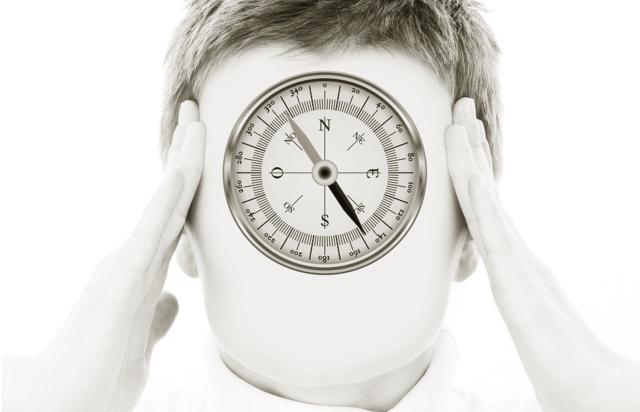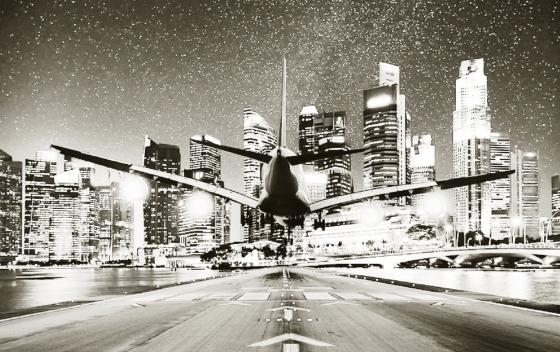为何有些人不再坐飞机
By Ellie Broughton

Customs and Border anxiety, the boredom of endless lines, and jet lag:1 Flying sucks. Add guilt over carbon emissions and it becomes harder to justify why we still do it.2
The aviation industry3 is currently responsible for about 2 percent of global greenhouse gas emissions. This figure is set to grow as air travel becomes increasingly popular. Airlines transported 4.3 billion passengers worldwide last year, an increase of 38 million over the year before. For every round-trip flight from New York City to London, which releases a ton of carbon dioxide into the atmosphere, 30 square feet of Arctic ice is lost.4
Efforts to reduce the effects of aviation are moving at a very slow pace. Emissions-cutting innovation is still many years, maybe decades, from implementation.5 Electric and solar-powered airliners are reportedly in development at Wright Electric and Airbus among others, but battery technology still lags behind jet fuel.6
全球氣候变化问题日益严峻,采取切实有效的措施来降低碳排放量已经刻不容缓。由于航空业是耗费燃油的大户,许多环保人士决定通过抵制搭乘飞机来为环保身体力行。但这可能并不是一个轻松的决定,毕竟作为最省时的远距离交通方式,坐飞机早已成为许多人生活中的必需环节。当环保需求与个人生活发生冲突,人们如何作出正确的选择?这样的做法又能否真正影响整体的气候局势呢?
The startling effects of aviation are why a number of people are choosing to quit, or hugely restrict, flying.7 While “staying grounded,” as activists call it, might not make the biggest difference to your carbon footprint―a study last summer found that cutting meat, eggs and dairy was the best thing people can do for the planet―it can still make a huge difference.8
One of the more noteworthy9 non-flyers in the news lately is climate activist Greta Thunberg. The 16-year-old took a 32-hour train from her home in Sweden to Switzerland to deliver her speech at Davos10. She hopes to join a bigger movement for changes to the aviation industry―and wants her behavior to make a statement.
“Ive decided to stop flying because I want to practice as I preach11, to create opinion and to lower my own emissions,” she said.“One person who stops flying will not make a difference. But if a large number of people do then it will. It sends a message that we are in a crisis and have to change our behaviour.”
Peter Kalmus, an author and climate scientist living in Altadena, California, stopped flying in 2012 after clocking12 50,000 miles in 2010. He set up the website No Fly Climate Sci for others who are doing similar things. His wife and their two kids, 10 and 12, agreed to swap plane journeys for13 car journeys.
He says he feels frustrated by arguments that pit personal choices against14 wider movements for change.
“The whole ‘individual versus collective thing is a false dichotomy,”15 he said. “We have to stop having this fruitless16 debate because action at any level leads to more action at every level. All these levels of action―community, individual, national, international―theyre all feeding back on17 each other.”
Zoe Hatch, who lives in Maidenhead in the U.K., stopped flying in 2015 after reading up on climate change and learning about climate feedback loops18. Her husband and their two children, 11 and 15, joined her in a family decision to switch to slow travel.
Hatch hasnt found it inconvenient or expensive, she says. She uses apps and sales alerts to find affordable train tickets. Being connected to continental Europe by the Eurostar train makes it relatively easy to travel abroad without needing to fly.19
“I wanted to introduce my kids to just being able to pick up a bag and travel,” she said. “When youre flying its like youre beamed into a different location, whereas when you go on a train journey, you can feel the transition.”20
Sophie Voillot, a translator from Montreal, last flew in 2014. She made two trips―one of which was to France to organize her fathers funeral.
Before her fathers death, Voillot flew there every year. Now that hes gone, she says, her main reason to travel has disappeared. “I still have friends and a few distant relatives over there,” she said. “Of course I miss them, but we still have the Internet to stay in touch and feel connected.”
Before she quit, shed had “bucket list” trips to the West Coast of the U.S., India and Nepal.21 Now a “splurge” trip for her is a long and expensive train trip to Alberta for the summer.22 She acknowledges that having traveled extensively before, she doesnt now feel like her decision to quit flying means giving up anything.

Steve Melia, Ph.D., is an expert in sustainable23 transportation at University of the West of England in Bristol,U.K., who stopped flying in 2005. He agrees that individual change, in itself, wont prevent climate crisis. “The sort of rapid change we need to avert the collapse of the ecosystem through climate change―thats not going to come about by people voluntarily choosing to change their behavior,”24 he added.
A survey compiled by one of his students last year found that, of 153 people whod cut back on flights, 76 percent said it felt like“doing the right thing” and 69 percent said“information about environmental impacts”changed their minds.
Melia adds that its important that people who feel the need to quit dont talk themselves out of it. “If we are going to achieve the sort of rapid change that is necessary, some people have to initiate25 that change, and if all of the people who might be initiating change are themselves flying and convincing themselves that they cant live without flying, then wheres the initiative for change going to come from?” he asked.
Kalmus knows quitting flying is not going to work for everybody. But, he says, those worried about climate change would probably benefit from acting on how they feel. “At this point, we just need to explore every avenue26,” he said. “Thats going to mean different things for different people because we all have different skills and interests. I urge people to get creative, and that may or may not include flying less.”
Thunberg feels its urgent to act now. “I know that many scientists are working with new techniques to reduce the emissions of the aviation industry, biofuel27 and creating electric airplanes,” she said. “But they will not be ready anywhere near the scale required within the timeframe of the Paris Agreement.28 Therefore I stay on the ground.”
1. Customs: 海关;border: 边境;jet lag: 飞行时差反应。
2. carbon emission: 碳排放量;justify: 证明……正确(或正当),为……作出解释。
3. aviation industry: 航空工业。
4. 每一次纽约和伦敦之间的往返旅程都会有1吨的二氧化碳排放至大气层里,这会导致30平方英尺的北极冰川融化。round trip:往返旅程;Arctic: 北极的。
5. innovation: 创新,革新;implementation:实施,执行。
6. solar-powered: 太阳能的;airliner: 大型客机,班机;Wright Electric: 赖特电气公司,是一家电动飞机制造创业公司,2016年在美国成立;Airbus: 空中客车公司,是欧洲一家飞机制造、研发公司,1970年12月于法国成立;lag behind: 落后。
7. startling: 惊人的;restrict: 限制,约束。
8. 行动主义者宣称的“留在地面”也许并不能给你的个人碳排放量带来显著的影响——毕竟去年夏天的一项研究发现,减少肉类、蛋类和乳制品的摄入才是人们能为地球做的最有效的贡献——然而,不再搭乘飞机仍然能带来巨大的改变。activist: 激进分子,行动主义分子;carbon footprint: 碳足迹,碳排放量。
9. noteworthy: 显著的,值得关注的。
10. Davos: 达沃斯,瑞士东部的一个城镇,以冬季运动和每年在那里召开的达沃斯论坛而闻名。
11. preach: 宣讲,说教。
12. clock: 达到(时间、距离、数量记录)。
13. swap… for: 与……交换。
14. pit…against: 使……相竞争,使……对峙。
15. versus: 与……相对;dichotomy:二分法,一分为二。
16. fruitless: 无成效的,无结果的。
17. feed back on: 回馈。
18. loop: 环,圈。
19. continental Europe: 欧洲大陆;Eurostar: 歐洲之星,是一条始于英国伦敦,通往法国巴黎、里尔、阿维尼翁,比利时布鲁塞尔,荷兰阿姆斯特丹、鹿特丹等地的高速铁路线。
20. beam into:(光线,激光光束等)射入;transition: 过渡,转变。
21. bucket list: 遗愿清单,人生目标清单;Nepal: 尼泊尔。
22. splurge: 挥霍,乱花钱;Alberta: 艾伯塔,加拿大的一个省。
23. sustainable: 可持续发展的。
24. avert: 避免,防止;collapse: 崩溃,瓦解;ecosystem: 生态系统;voluntarily: 自愿地,无偿地。
25. initiate: 开始,发起。
26. avenue: 途径,方法。
27. biofuel: 生物燃料。
28. timeframe: 时间范围,时间表;Paris Agreement:《巴黎协定》,是由联合国196个缔约方在2015年联合国气候变化大会中通过的气候协议。这一协定取代了《京都议定书》,确定了2020年后的全球气候治理相关安排。

